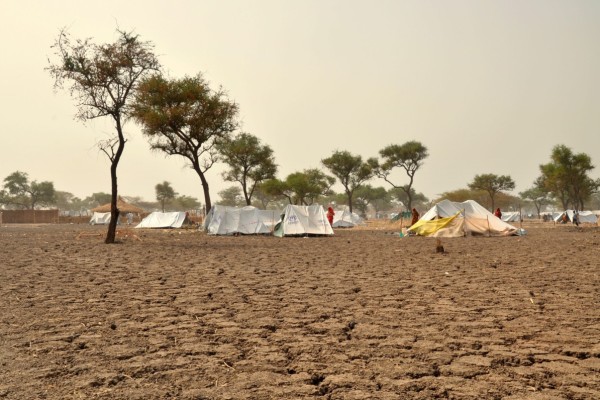-

Roadmap for an arms embargo
Last week, virtually every attendee arriving at CANSEC—North America’s largest annual arms trade show—was met with the piercing cry of “war criminal,” as over 300 protesters gathered to denounce war profiteering and Canada’s complicity in war crimes and crimes against humanity committed by Israeli armed forces and political authorities since October 7, 2023.
-

Out in the cold: Where does Canada stand on Sudan?
The international community’s failure to act on Sudan has left small diasporas to shoulder the lives of millions—exhausted and unable to set down grief, the Sudanese put their lives on the line to get people to care and open a door. Sudan’s future continues to lie with the same vultures that hold a stake in the country’s continued bloodshed.
-

Canada’s response to Sudanese humanitarian crisis reflects systemic racism
How many more lives will be lost as a small Sudanese diaspora struggles to bring attention to a crisis that has paralyzed Africa’s third-largest country? And how much longer will a crisis be widely recognized as tragic, brutal and heartbreaking—but ultimately disregarded in practice as just another African war?
-

A common language: Critical metals and Québec’s clientelist relationship with France
Québec’s ambitious strategy for regional development across the entire lifespan of rechargeable batteries proposes real benefits in a challenging transition away from fossil fuels and dependence on conflict resources, but at what cost? As the meeting between Attal and Legault shows, Québec’s future is being shaped to cater to big capital.
-

Wholesale privatization, false solutions
Critics agree that the CAQ’s reforms have politicized health care, treating it more and more as just another market sector rather than a social good. As Lital Khaikin outlines, ‘entrepreneurial solutionism’ is transforming health care in Québec into a commodity to be exploited by venture capitalists and made available differentially to those who can afford it.
-

Despair is the currency of massacre
The neglect of Palestine’s humanitarian crisis and the continuity of Israeli apartheid in the immediate aftermath of 9-11, and the invasion of Afghanistan and Iraq, has never been more urgent. The inability to address the racist and classist policies of repressive states is only adding fodder to reactive extremism and eroding ideological diversity in anti-imperialist resistance.
-

Québec public sector workers are ready for a general strike
Fed up with the deterioration of public services under the Coalition Avenir Québec (CAQ) government, thousands took to the streets of Montréal on September 23 to demand fair pay, improved benefits, and better working conditions while unions negotiated new collective agreements with the province. Journalist Lital Khaikin provides our latest labour update.
-

Compassion in an age of anxiety and disillusionment
Canadian physician and author Gabor Maté’s new book, The Myth of Normal, is a rich examination of the conditions that lead to individual illness and the cultural normalization of stress, alienation, and disenfranchisement. The book questions and dismantles notions of ‘normalcy,’ interrogating the factors behind the rise of what Maté calls trauma-related illnesses.
-

“The voice of Indigenous peoples is the real voice of nature”
Millions of dollars in funding for biodiversity preservation, conservation projects, and “nature-based solutions” have been announced at COP15 by states and philanthropic foundations alike. Yet as business delegates emphasized changing consumer behaviour as a critical condition of meeting lofty targets, a sliver of the market driving energy demand reflects a convoluted picture.
-

Who watches the watchers?
With automated systems already trained on inaccurate data—Russia as the trial ground—“publisher classification” systems for analyzing, reporting, targeting and removing dissenting voices, accounts and publications set a dangerous precedent for tracking and blacklisting voices that challenge Canadian foreign policy online with accusations of “fake news.”



